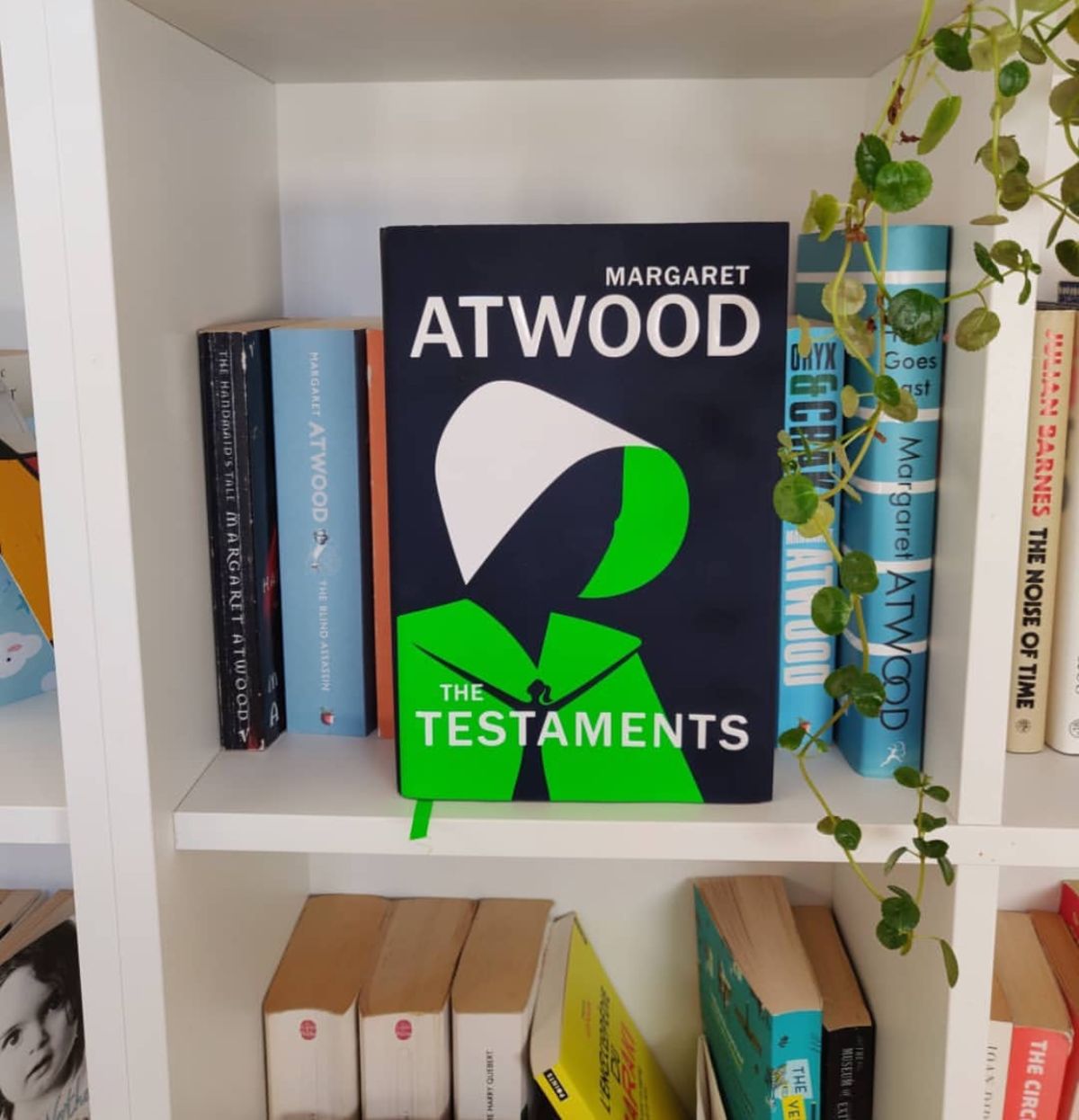Review: ‘The Testaments’ by Margaret Atwood
By Alice Porter

Margaret Atwood’s highly anticipated sequel to The Handmaid’s Tale, The Testaments, was published in September 2019 by Penguin. Atwood announced the release of the book last December, 33 years after the publication of the original novel.
As a long-time Atwood fan, I wanted to love this book, but having read some of her weaker works, I was sceptical of it – especially since The Handmaid’s Tale, which has been so important politically and socially, has been continually commercialised over the past few years.
Unfortunately, The Testaments succumbed to this commercialisation, with a predictable plot that left me with a nagging thought at the back of my head while I was reading it, asking: ‘What is the point in this book?’
Atwood’s 1985 novel famously ends on a cliffhanger of sorts and many were excited for The Testaments to resolve the questions that were left unanswered by The Handmaid’s Tale. Rather than simply picking up where she left off 36 years ago though, Atwood took a different approach with The Testaments, telling three individual stories from different points of view.
The most enjoyable sections of the novel were the parts written from Aunt Lydia’s perspective, a character we met in the original novel. The text follows her journey of how she went from a well-to-do lawyer living in Canada, championing the rights of women, to a prestigious Aunt in Gilead, teaching the values of the totalitarian state to the girls and women living there. The character was recognisable and her story arc was a well-developed one, if slightly predictable.
The remaining two thirds of the novel were from the points of view of two teenage girls, one growing up in Gilead and one growing up in Canada. The writing in these parts of the book was what really let it down. The characterisation was poor; it felt completely out of touch with how teenage girls would really be feeling, as well as what they would be saying and doing, which making it cringe-worthy, at best, painful, at worst, to read.
The most frustrating part of this novel, for me, was that it was littered with shocking moments that were supposed to keep the momentum of the plot going, but I had guessed every single one of these plot lines at least a few chapters before they happened.
Atwood has always created interesting and unique plots, so why this one was so generic, I don’t know. Perhaps, because of the time restraints related to getting the novel published whilst its popularity was still intact? More likely, I think that this simple plot was intentional, in order to make the novel as commercially appropriate as possible, in line with the TV series.
Although I found this novel extremely disappointing, I did nevertheless appreciate being re-immersed into the world of Gilead. On top of this, in The Handmaid’s Tale and its sequel, Atwood only writes about events that have actually taken place in American history, making the descriptions of what takes place in Gilead particularly shocking and effective.
Some of the questions readers had after finishing the 1985 novel were answered, but they were mostly tied up in neat, unconvincing bows. They would have been far more impactful and interesting if left unanswered.
If you enjoyed Naomi Alderman’s The Power, you’ll probably enjoy this. Atwood was actually Alderman’s mentor in writing that novel, and I had the same problems with it as I did with The Testaments. I felt as though Atwood tried to mirror Alderman’s extremely successful 2016 plot-driven novel, but it just didn’t work for a franchise as important as The Handmaid’s Tale and for an esteemed writer like Atwood.
The nagging at the back of my head definitely got the better of me whilst I read this book. I just couldn’t stop questioning why the book was written, I wanted to find a reason for its existence, but none materialised. If you can, unlike me, appreciate this book for what it is – an easy read that is set in an interesting world but doesn’t necessarily carry much political weight – you’ll probably enjoy it. But I wouldn’t put it at the top of your reading list, especially if you find the commercialisation of The Handmaid’s Tale as frustrating as I do, because this will send you over the edge.







